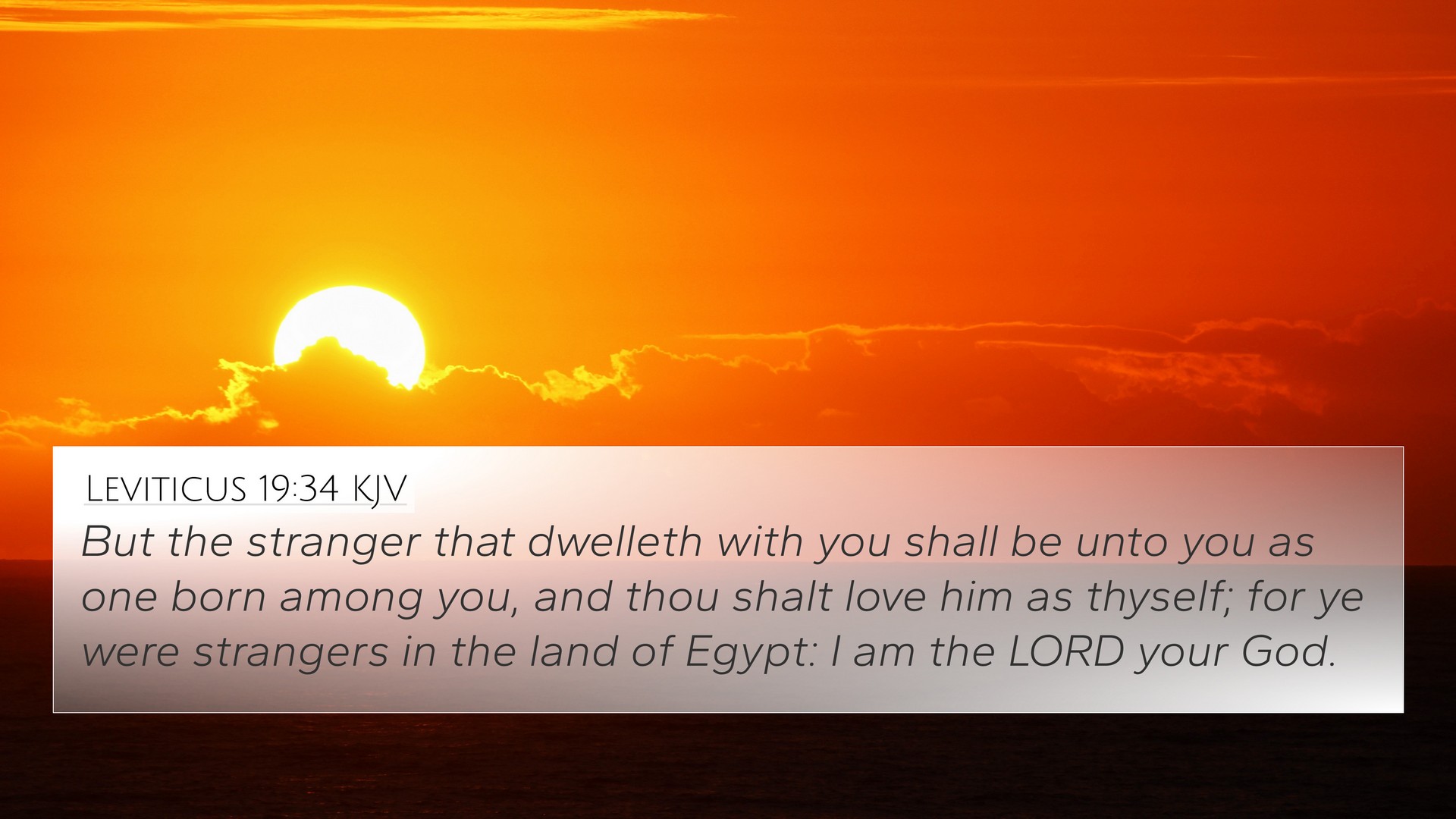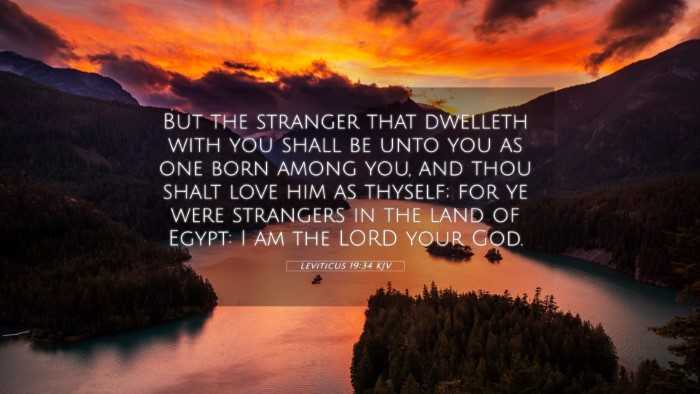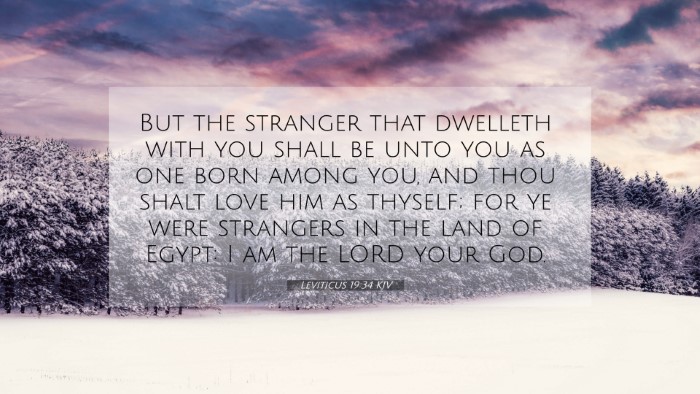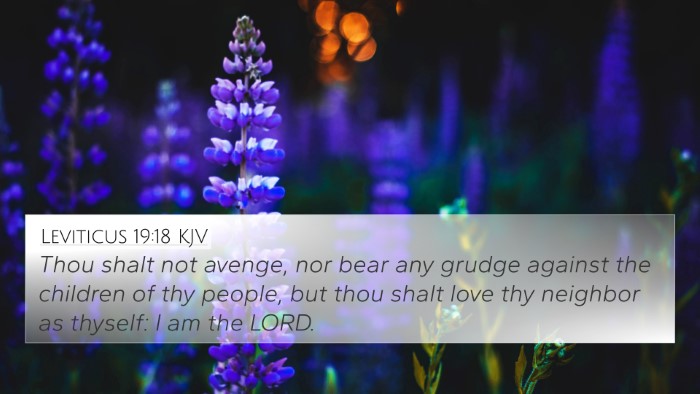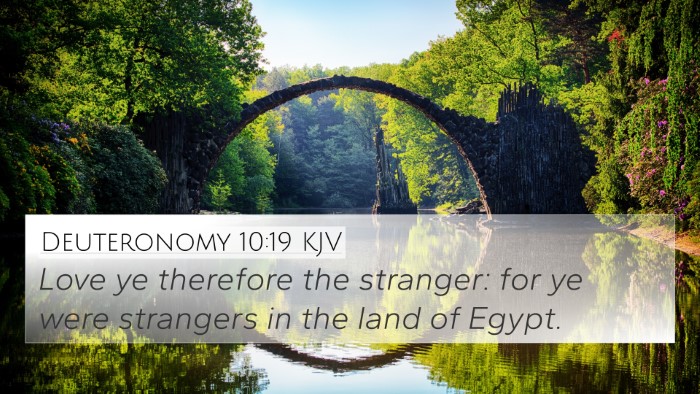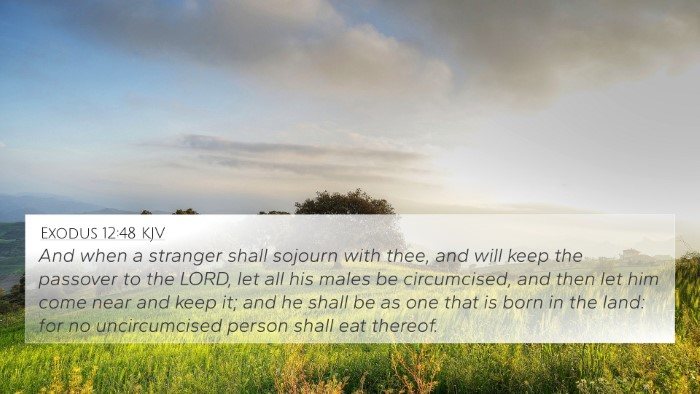Understanding Leviticus 19:34
Verse Reference: Leviticus 19:34 - "But the stranger that dwelleth with you shall be unto you as one born among you, and thou shalt love him as thyself; for ye were strangers in the land of Egypt: I am the LORD your God."
Summary of Meaning
This commandment emphasizes the importance of love and inclusion within the community of God's people, extending grace and acceptance even to outsiders. It reflects God's own character by recalling His redemptive work in Egypt and reminding the Israelites of their own past.
Commentary Insights
-
Matthew Henry:
Henry highlights the imperative nature of loving one’s neighbor, which includes foreigners. He notes that this love should stem from the memory of Israel's own oppression in Egypt, prompting compassion and understanding toward those who may be marginalized.
-
Albert Barnes:
Barnes discusses the equality that God’s law seeks to establish among all people. The phrase "as one born among you" underscores the universal call to treat all individuals with dignity, encouraging Israelites to remember their history as strangers to foster empathy.
-
Adam Clarke:
Clarke explains that this verse calls for the Israelites to embrace strangers as family. He cites the significance of love as a core principle in the community, reinforcing the idea that God's people are to live by a higher standard of morality that reflects God’s own character.
Cross-References
- Exodus 22:21: "Thou shalt neither vex a stranger, nor oppress him; for ye were strangers in the land of Egypt: I am the LORD your God."
- Deuteronomy 10:19: "Love ye therefore the stranger: for ye were strangers in the land of Egypt: I am the LORD your God."
- Matthew 22:39: "And the second is like unto it, Thou shalt love thy neighbour as thyself."
- Luke 10:27: "And he answering said, Thou shalt love the Lord thy God with all thy heart, and with all thy soul, and with all thy strength, and with all thy mind; and thy neighbour as thyself."
- Galatians 3:28: "There is neither Jew nor Greek, there is neither bond nor free, there is neither male nor female: for ye are all one in Christ Jesus."
- Romans 15:7: "Wherefore receive ye one another, as Christ also received us to the glory of God."
- James 2:8: "If ye fulfill the royal law according to the scripture, Thou shalt love thy neighbour as thyself, ye do well."
Thematic Connections
This verse connects significantly with themes of love, empathy, and community responsibility throughout the Bible. It sets a precedent for how God's people are to treat each other and those outside their community.
Tools for Cross-Referencing
Utilizing various tools for Bible cross-referencing can provide deeper insight into the relationships between these scriptures. Here are some resources:
- Bible Concordance: A concordance allows you to look up specific words for their occurrences and how they relate across texts.
- Bible Cross-Reference Guide: This guide offers a systematic approach to identifying verses that complement or contrast one another.
- Cross-Reference Bible Study: This method encourages the study of Bible verses in tandem to glean richer meanings.
Conclusion
Leviticus 19:34 serves as a critical indicator of God’s desire for His people to reflect His love throughout their interactions. By embracing those who are different and showing them love, believers can embody the principles found throughout both the Old and New Testament.
FAQs
- What verses are related to Leviticus 19:34? Key related verses include Exodus 22:21 and Deuteronomy 10:19, which echo the command to love the stranger.
- How do Leviticus 19:34 and Matthew 22:39 connect? Both verses emphasize loving neighbors, with Leviticus extending that love to strangers, reflecting the expansive nature of God's command.
- Why is loving strangers significant in the Bible? It illustrates God’s inclusive nature and recalls the Israelites' history, urging them to act justly and compassionately.
